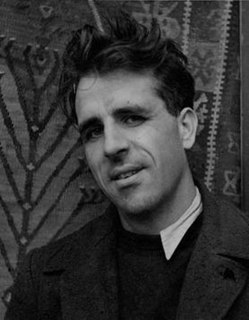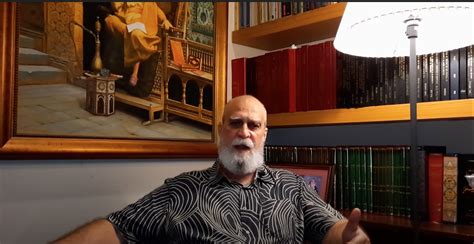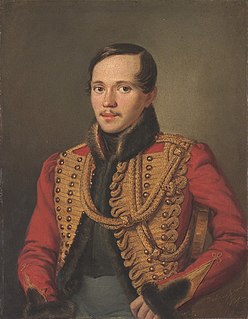A Quote by Alexandre Dumas
He was thinking alone, and seriously racking his brain to find a direction for this single force four times multiplied, with which he did not doubt, as with the lever for which Archimedes sought, they should succeed in moving the world, when some one tapped gently at his door.
Related Quotes
Caution has its place, no doubt, but we cannot refuse our support to a serious venture which challenges the whole of the personality. If we oppose it, we are trying to suppress what is best in man - his daring and his aspirations. And should we succeed, we should only have stood in the way of that invaluable experience which might have given a meaning to life.
When he at least reached the door the handle had cease to vibrate. Lowering himself suddenly to his knees he placed his head and the vagaries of his left eye (which was for ever trying to dash up and down the vertical surface of the door), he was able by dint of concentration to observe, within three inches of his keyholed eye, an eye which was not his, being not only of a different colour to his own iron marble, but being, which is more convincing, on the other side of the door.
Man is more than his environment. It is from the innate quality of the Spirit in him, his inner storehouse, that he draws those ideas, his intuitions, which unify his perceptions of the external world instantaneously with a value which is qualitative and not quantitative, and which he embodies in the works of his culture - those achievements which belong not only to one particular time but to all times, and mark the path of his upward progress.
It is probable that all heavy matter possesses - latent and bound up with the structure of the atom - a similar quantity of energy to that possessed by radium. If it could be tapped and controlled what an agent it would be in changing the world's destiny! The man who put his hand on the lever by which a parsimonious nature regulates so jealously the output of this store of energy would possess a weapon by which he could destroy the earth if he chose.
It is like the thirsty traveller who at first sincerely sought the water of knowledge, but who later, having found it plain perhaps, proceeded to temper his cup with the salt of doubt so that his thirst now becomes insatiable though he drinks incessantly, and that in thus drinking the water that cannot slake his thirst, he has forgotten the original and true purpose for which the water was sought.
How I like claret!...It fills one's mouth with a gushing freshness, then goes down to cool and feverless; then, you do not feel it quarrelling with one's liver. No; 'tis rather a peace-maker, and lies as quiet as it did in the grape. Then it is as fragrant as the Queen Bee, and the more ethereal part mounts into the brain, not assaulting the cerebral apartments, like a bully looking for his trull, and hurrying from door to door, bouncing against the wainscott, but rather walks like Aladdin about his enchanted palace, so gently that you do not feel his step.
The American city should be a collection of communities where every member has a right to belong. It should be a place where every man feels safe on his streets and in the house of his friends. It should be a place where each individual's dignity and self-respect is strengthened by the respect and affection of his neighbors. It should be a place where each of us can find the satisfaction and warmth which comes from being a member of the community of man. This is what man sought at the dawn of civilization. It is what we seek today.
Every individual man has a bias which he must obey, and...it is only as he feels and obeys this that he rightly develops and attains his legitimate power in the world. It is his magnetic needle, which points always in one direction to his proper path.... He is never happy nor strong until he finds it, keeps it.
The question that faces every man born into this world is not what should be his purpose, which he should set about to achieve, but just what to do with life? The answer, that he should order his life so that he can find the greatest happiness in it, is more a practical question, similar to that of how a man should spend his weekend, then a metaphysical proposition as to what is the mystic purpose of his life in the scheme of the universe.
The writer, like a swimmer caught by an undertow, is borne in an unexpected direction. He is carried to a subject which has awaited him--a subject sometimes no part of his conscious plan. Reality, the reality of sensation, has accumulated where it was least sought. To write is to be captured--captured by some experience to which one may have given hardly a thought.
The pitch to which he was aroused was tremendous. All the fighting blood of his breed was up in him and surging through him. This was living., though he did not know it. He was realizing his own meaning in the world; he was doing that for which he was made.... He was justifying his existence, than which life can do no greater; for life achieves its summit when it does to the uttermost that which it was equipped to do.
The whole purpose of spiritual direction is to penetrate beneath the surface of a man's life, to get behind the façade of conventional gestures and attitudes which he presents to the world, and to bring out his inner spiritual freedom, his inmost truth, which is what we call the likeness of Christ in his soul.
A person does not...stand motionless and clear before our eyes with his merits, his defects, his plans, his intentions with regard to ourself exposed on his surface...but is a shadow which we can never succeed in penetrating...a shadow behind which we can alternately imagine, with equal justification, that there burns the flame of hatred and of love.
You must therefore zealously guard in his mind the curious assumption 'My time is my own'. Let him have the feeling that he starts each day as the lawful possessor of twenty-four hours. Let him feel as a grievous tax that portion of this property which he has to make over to him employers, and as a generous donation that further portion which h allows to religious duties. But what he must never be permitted to doubt is that the total from which these deductions have been made was, in some mysterious sense, his own personal birthright.





































